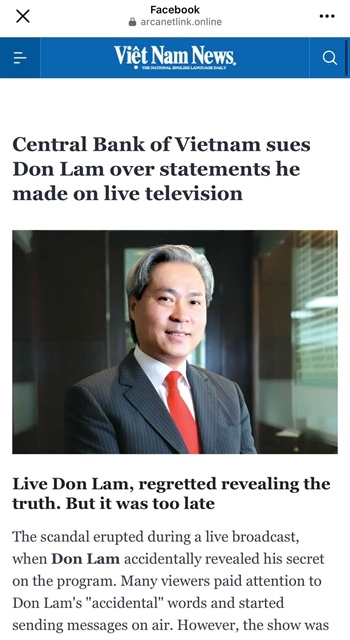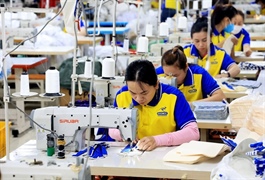Online “fake news” articles defaming businesses and individuals and scamming readers
Online “fake news” articles defaming businesses and individuals and scamming readers
In recent weeks, Facebook and other social media channels have been awash with posts claiming that top executives from businesses in Việt Nam, including Vingroup, FPT, and VinaCapital, have been “caught on tape” supposedly saying scandalous things.

Screenshot of a post inappropriately and illegally use the logo of Việt Nam News. |
Sometimes these posts feature photos taken from legitimate sources, but other times use bad Photoshopped photos. Many of these posts inappropriately and illegally use the logos of credible established news sites, including Việt Nam News.
Although most readers can easily determine that such posts are fake, other readers may be misled into believing they are real.

Screenshot of a post inappropriately and illegally use the logo of Việt Nam News. |
When seeing such posts and articles online, social media users can protect themselves by being careful about clicking any links that may appear in such posts - they could be associated with phishing and malware scams. The sites and pages posting such articles may be linked to potentially criminal or other illegitimate actors.
They should consider the news source by always checking the link of the site posting the news. If you have never heard of the site or organisation before, there’s a good chance it could be fake.
Double checking scandalous “news” is needed. If only one site is reporting about an alleged scandal, it’s likely the “scandal” is fake.
They need to understand that business leaders are unlikely to endorse third party businesses and services, especially those that claim to help people “get rich quick” or promise to deliver “guaranteed” high returns in a short amount of time.
As AI becomes more commonly available and easy to use, it’s critical that people learn how to discern what is real and what is not and protect themselves from online scams or being duped.























